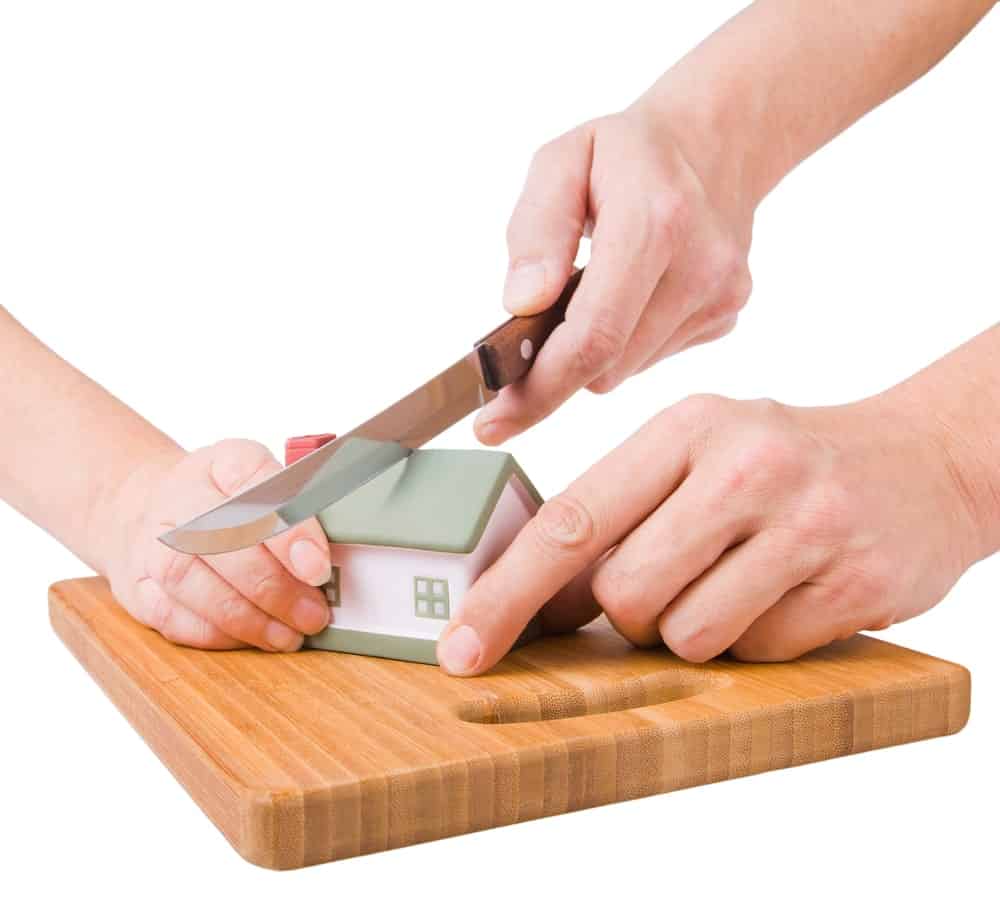
What Property is Exempt from Division When Couples Divorce or Separate in Alberta?
Divorce or separation can be one of life’s major stressors. An aspect that can provoke particular anxiety is property division – what assets do spouses have to share when their relationship breaks down?
While the starting principle is that all assets and debts are split down the middle, there are some exceptions to that rule. As part of the process of determining how property owned by you and your spouse will be divided, you will need to identify whether any agreements you have made could affect your property division, and whether either of you owns any exempt property.
The Default Rule Regarding Family Property Division
Under the Family Property Act, there is a presumption of equal division for all property acquired by either spouse during the relationship. This property collectively is understood to be “family property” whether it is in your name or the name of your spouse, and by default, it will normally be divided equally between you.
Note that the rules governing family property division in Alberta apply not only to married spouses, but also to unmarried spouses (or “adult interdependent partners”) provided they have lived together in a relationship of interdependence for at least three years, or have lived together for a lesser time but have a child together. For more information about what qualifies as an adult interdependent partnership, see our blog article here [blog is coming soon].
Pre-Nuptial or Cohabitation Agreements
This default rule of equal division of family property may be displaced where the parties have signed an agreement – typically, a prenuptial or cohabitation agreement entered into prior to marriage or during the course of the relationship. Such agreements may be used to stipulate terms for the division of property in the event of separation or divorce that differ from the division that would ordinarily occur under the Act.
Prenuptial or cohabitation agreements are permitted and enforceable in Alberta, but they must comply with certain requirements prescribed by statute and by the courts. For more information, see our blog post here.
Exempt Property
Even if you and your spouse have not signed any agreements dealing with division of your property, there may be some assets that qualify for exemption from the default rule of equal division.
The Family Property Act provides for four types of property that do not have to be divided:
- inheritances;
- gifts;
- money received as damages or settlement of a tort claim;
- property that was acquired before marriage.
A spouse who has owns property that falls into any of these categories may have an exemption and may not be required to share the property or its value with the other spouse.
How Much Can I Claim as an Exemption?
A spouse who owns exempt property can claim an exemption equal to the value of the property at the time it was acquired (eg gifts and inheritances), or at the time the marriage or interdependent relationship started, which ever is later.
However, any increase in the value of the property that subsequently occurred during the relationship is not exempt. So, for example, if you owned a house valued at $300,000 at the time your relationship began, and the house is worth $450,000 at the time of separation or divorce, only the initial $300,000 will be exempt from division.
However, courts have discretion about how to divide the increase in value – there is no presumption of equal division. For example, a court could divide the increase 80/20, or even order no division at all, if it feels that is “just and equitable” after taking all the circumstances into account.
How Can Divorce Mediation Help Determine Property Exemptions in Alberta?
Divorce mediation can streamline property division by fostering mutual agreements. With the divorce mediation process explained, couples in Alberta can identify property exemptions collaboratively, ensuring clarity and fairness. This approach avoids costly legal battles, promotes open communication, and helps both parties develop solutions that align with Alberta’s property division laws.
Which Property Exemptions Apply During a Divorce in Alberta?
During a divorce in Alberta, certain property exemptions like pre-marital assets, inheritances, or gifts may apply, protecting them from division. Understanding these exemptions is crucial for equitable settlements. If you’re looking to navigate this process effectively, research “how to file for divorce alberta” to ensure compliance with legal requirements and safeguard your interests.
Can Exempt Property Lose Its Exempt Status?
Yes. There are two ways that this could happen.
- The exempt property has to still be owned at the time of separation/divorce in order to claim the exemption, or it has to be traceable into some property that is still owned by the spouse.
For example, if you sold property that you received as a gift or inheritance, but can show that you used the money to buy something else that you still own, you may still be able to claim the exemption.
However, if you sold the property and cannot show where the funds went, you may have lost the exemption.
- Exempt property that has been co-mingled with family property or treated in some other way that shows the spouse did not intend to keep it separate may no longer be exempt. This can happen by putting money into a joint bank account or placing an asset in joint title.
Examples
Some examples may help to understand how the exemption rules operate.
Example 1:
Jane inherited her family’s cottage and later sold it. She was married at the time and kept the funds from the sale in an investment account in her name only. During the divorce, the funds were traceable to the inherited cottage, and therefore the value of the cottage at the time she inherited it is exempt from having to be split with her spouse. However, any increase in the value of the cottage before it was sold, or growth in the value of the investment account thereafter, are not exempt and will be split in whatever proportion the court considers appropriate.
Example 2:
After selling the cottage, Jane put the funds into a joint bank account and the funds were used up making improvements on the couple’s jointly owned matrimonial home and paying general household expenses. The funds would be considered “comingled” and Jane has likely lost her exemption for the value of the inherited cottage.
Example 3:
Jane was involved in a motor vehicle accident and received a damages settlement of $100,000. She placed the funds into her investment account, and later used them to buy a condo that is in her name only. The initial $100,000 received from the settlement is exempt from division, and will be deducted from the value of the condo at the time of separation or divorce. The remaining equity in the condo will be subject to division.
Assessing what exemptions you may have and what your property division may be look like can be complicated. A lawyer specializing in family law can provide guidance and clarification and help you obtain the best possible outcome for your situation. Contact one of our experienced family lawyers today.

We currently have three offices across Alberta — Edmonton, Calgary, and Red Deer. We serve the entire province of Alberta (and BC). We also have the infrastructure to work with any of our clients virtually — even the furthest regions of Alberta.
Call 1 (855) 892-0646 (toll free) to get routed to the best office for you or contact us online for general inquiries.
We also have a dedicated intake form to help you get the ball rolling. Our intake team will review your specific case and advise you on the next steps to take as well as what to expect moving forward. That’s the best way to schedule an appointment

Our offices are generally open 8:30 a.m.—4:30 p.m., Mon—Fri.


Raveena Gill
FAMILY LAWYER
Raveena’s approach focuses on incorporating each particular client’s unique values and goals when determining the best course of action in their matter
The Legal Review Process by Spectrum Family Law
- Spectrum strives for high-quality, legally verified content.
- Content is meticulously researched and reviewed by our legal writers/proofers (usually local law students).
- Details are sourced from trusted legal sources like the Family Law Act.
- Each article is edited for accuracy, clarity, and relevance.
- If you find any incorrect information or discrepancies in legal facts, we kindly ask that you contact us with a correction to ensure accuracy.


